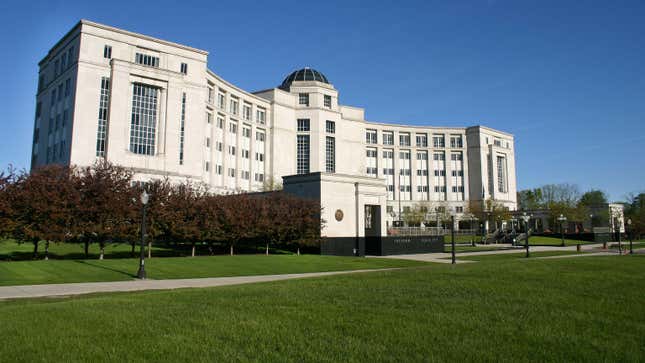
On Wednesday, the Michigan Supreme Court threw out an attempt to remove Donald Trump from the 2024 primary ballot per the US Constitution’s “insurrectionist ban.” The only appropriate reaction to that news is “Damn!” though all hope is not lost: an effort to remove the former president could be renewed for the general election.
Earlier this month, the Colorado Supreme Court removed Trump from its primary ballot because of the role he played in the January 6 Capitol riot. However, that decision has been paused pending an appeal. In both Michigan and Colorado, those who challenged his eligibility invoked section 3 of the US constitution’s 14th amendment.
The aforementioned section largely blocks people from holding government office if they “have engaged in insurrection or rebellion” against the US constitution after they had sworn an oath to uphold it. Michigan rejected the case on procedural grounds; they never explored if January 6 was an insurrection nor did they question Trump’s involvement with it.
According to the Michigan Court of Claims judge who initially received the case, state law does not grant election officials the scope to monitor the eligibility of presidential primary candidates. In addition, he stated that the political question being raised should not be decided in the courts.
The Michigan Court of Appeals stated: “At the moment, the only event about to occur is the presidential primary election. But as explained, whether Trump is disqualified is irrelevant to his placement on that particular ballot.” In addition to the rulings in Colorado and Michigan, more than a dozen states have similar litigation in the works, according to a database overseen by Lawfare.
Free Speech for the People—the group that brought the lawsuit—were upset by the ruling remain hopeful. “We are disappointed by the Michigan supreme court’s decision,” said Ron Fein, legal director of the group. “The decision isn’t binding on any court outside Michigan and we continue our current and planned legal actions in other states to enforce Section 3 of the Fourteenth Amendment against Donald Trump.”

